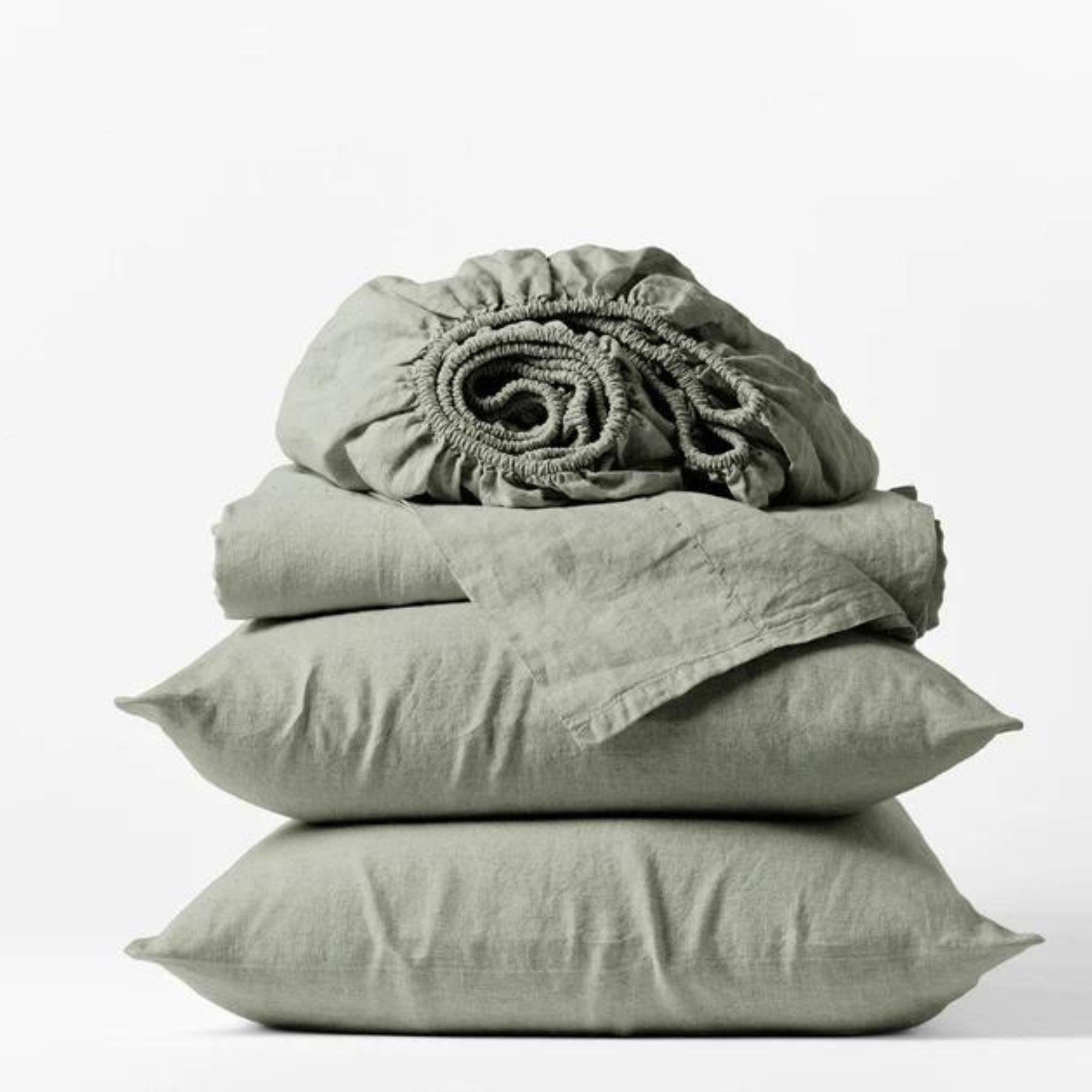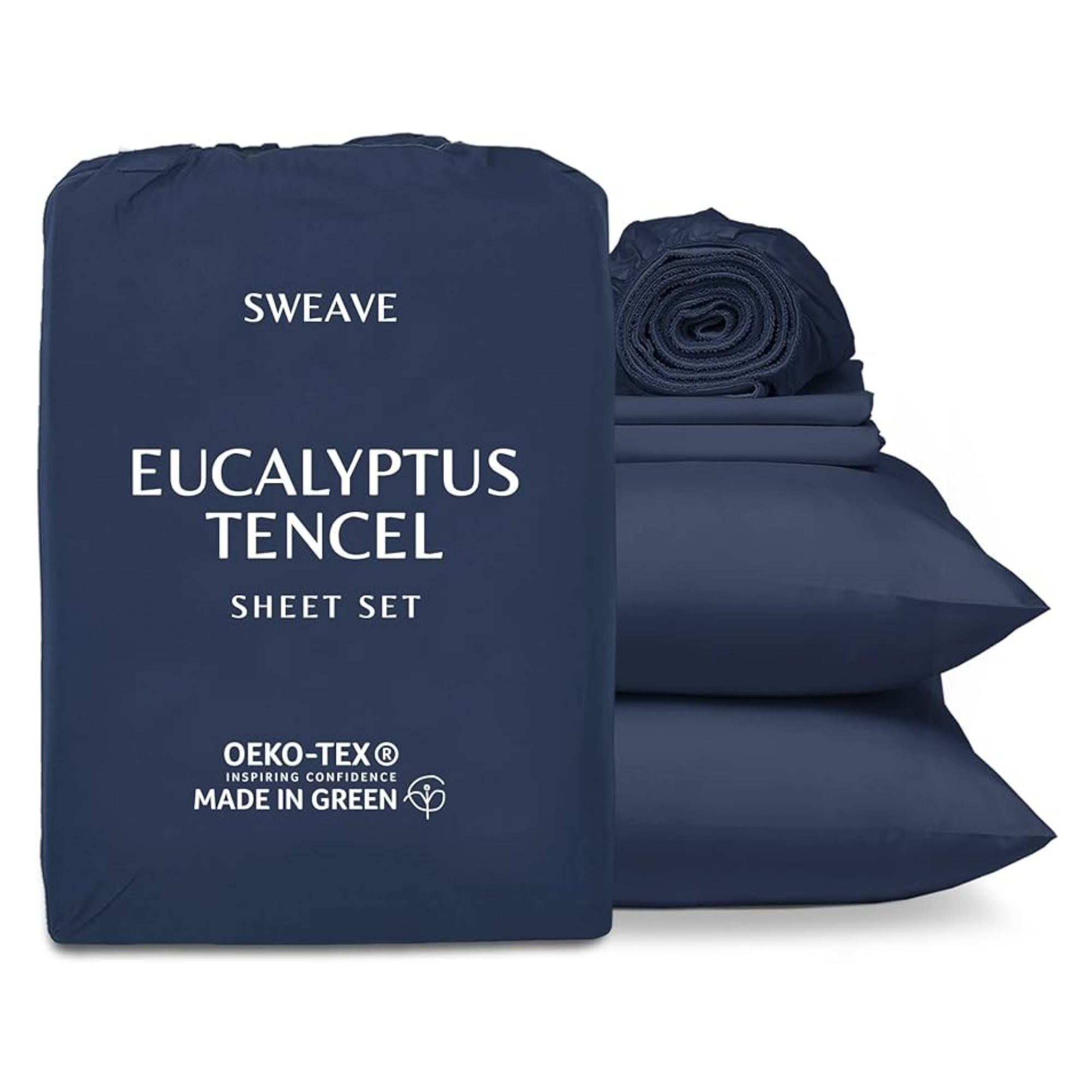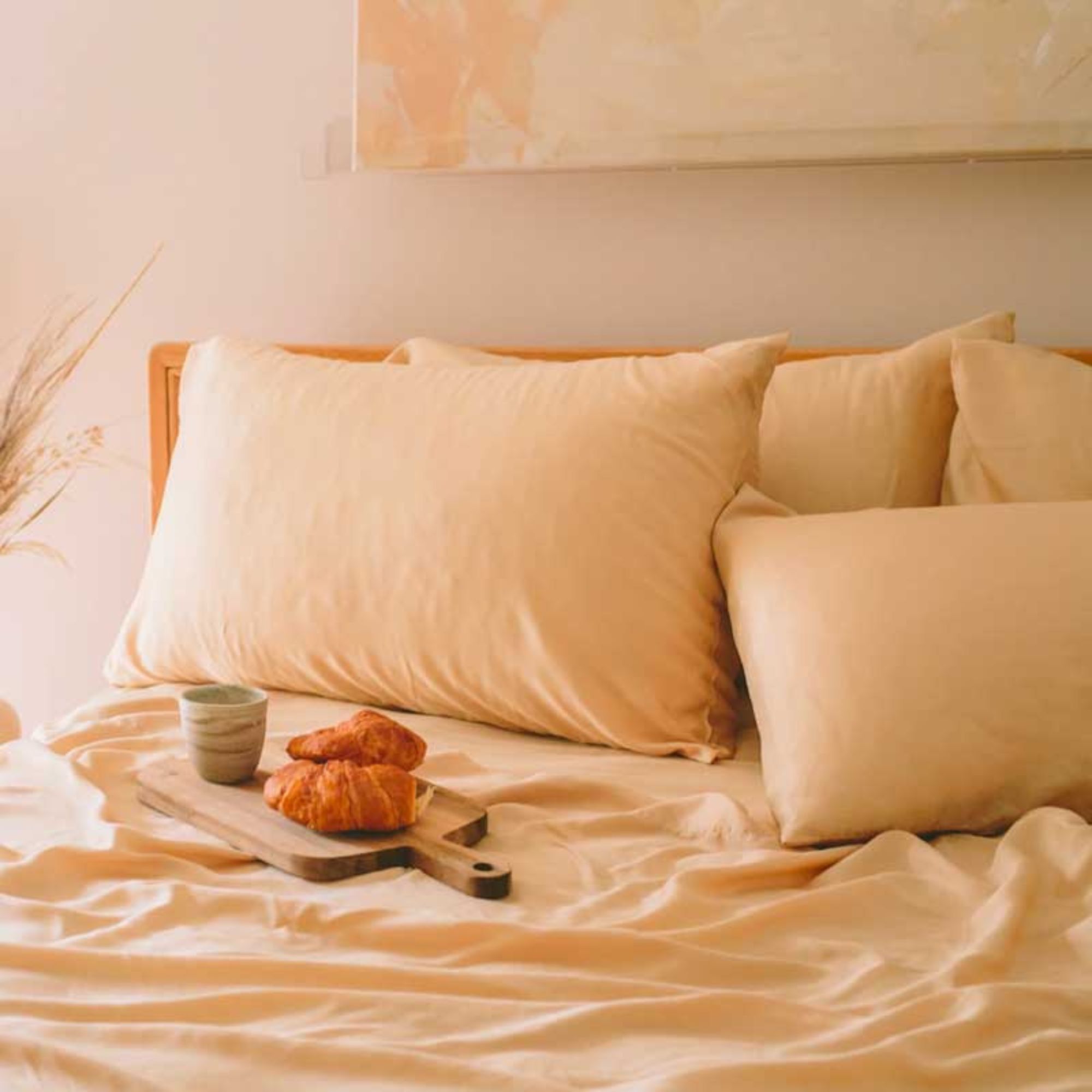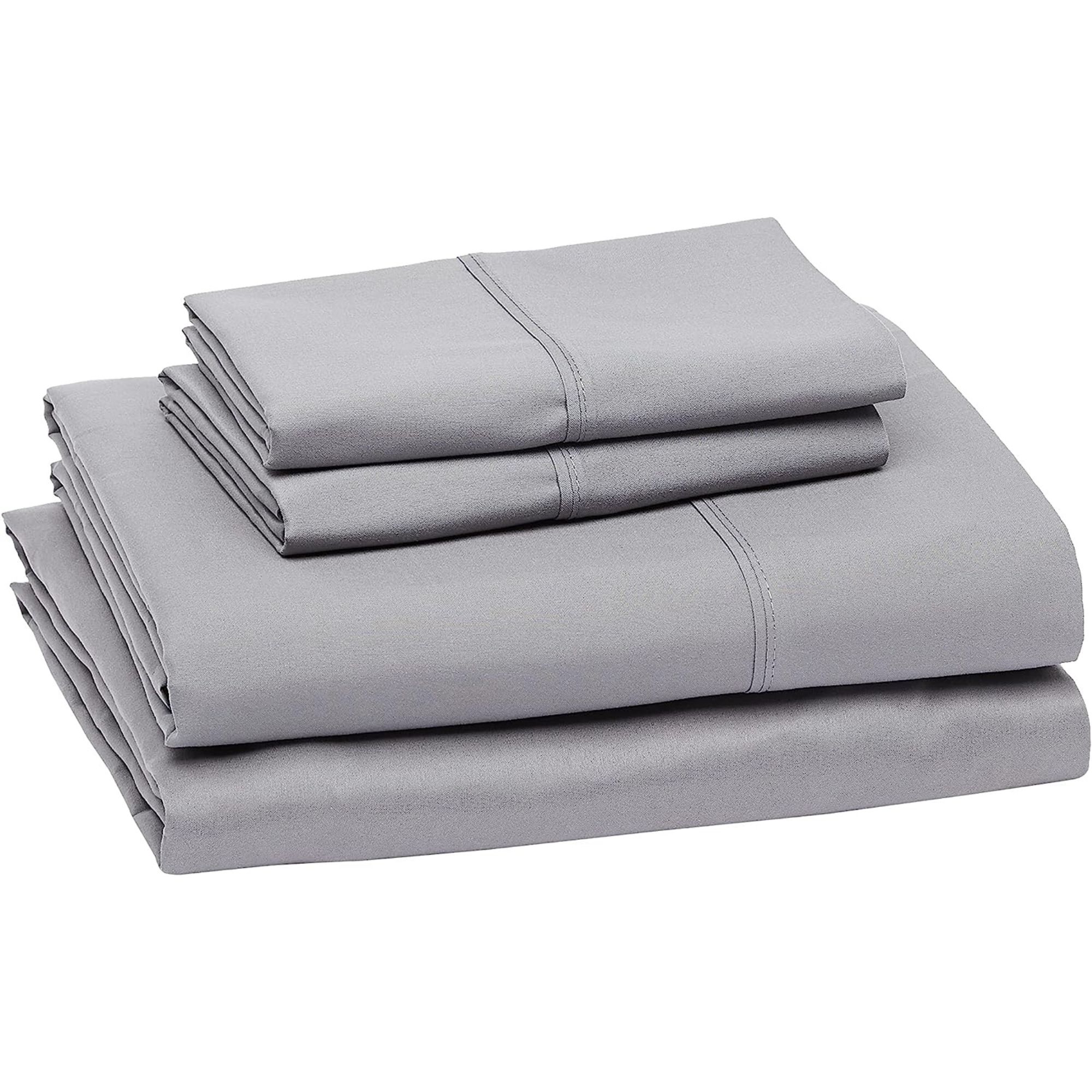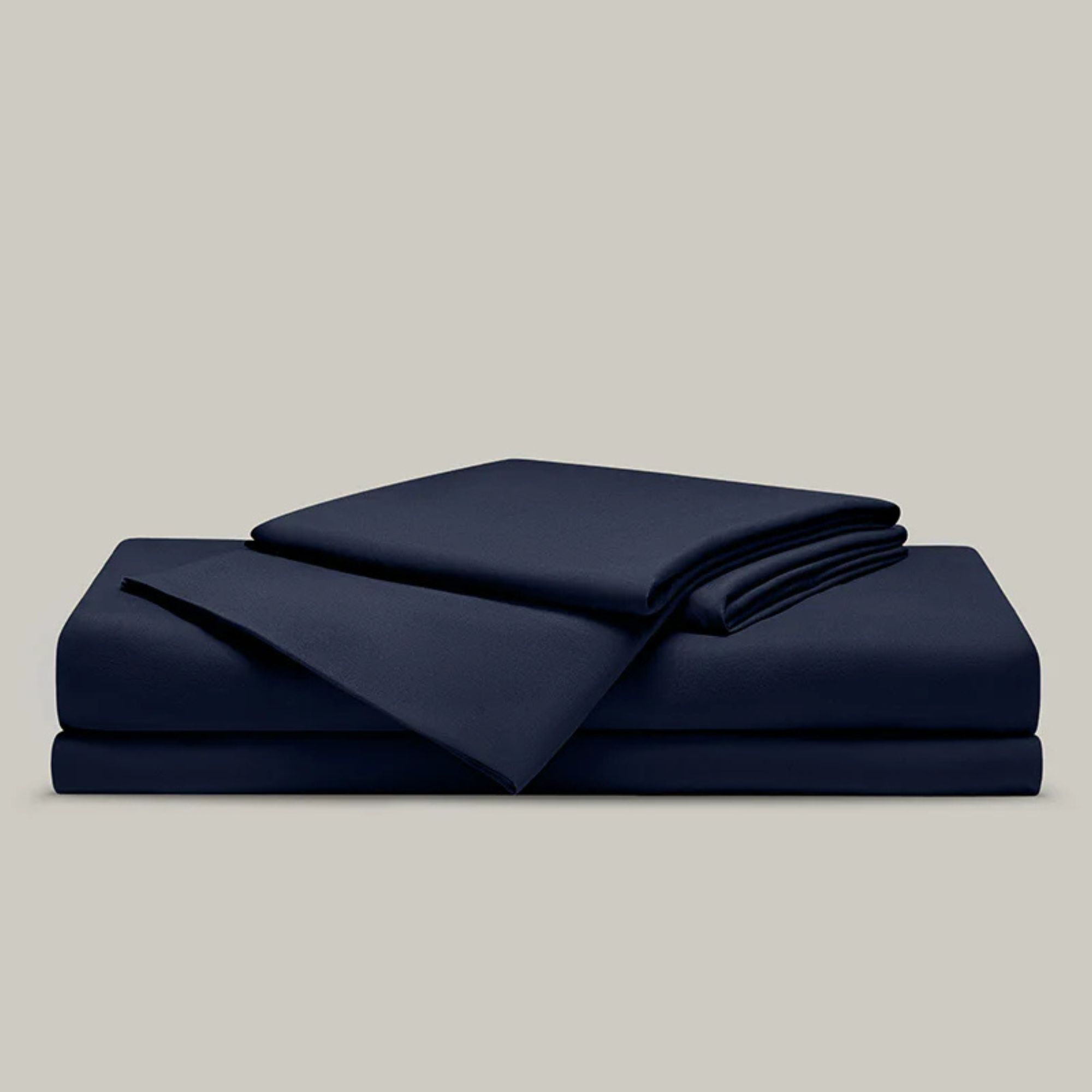Are Egyptian cotton bed sheets really the best? Our sleep editor investigates
Although Egyptian cotton bed sheets look and feel luxurious, you might find that other materials better suit your budget and sleep style
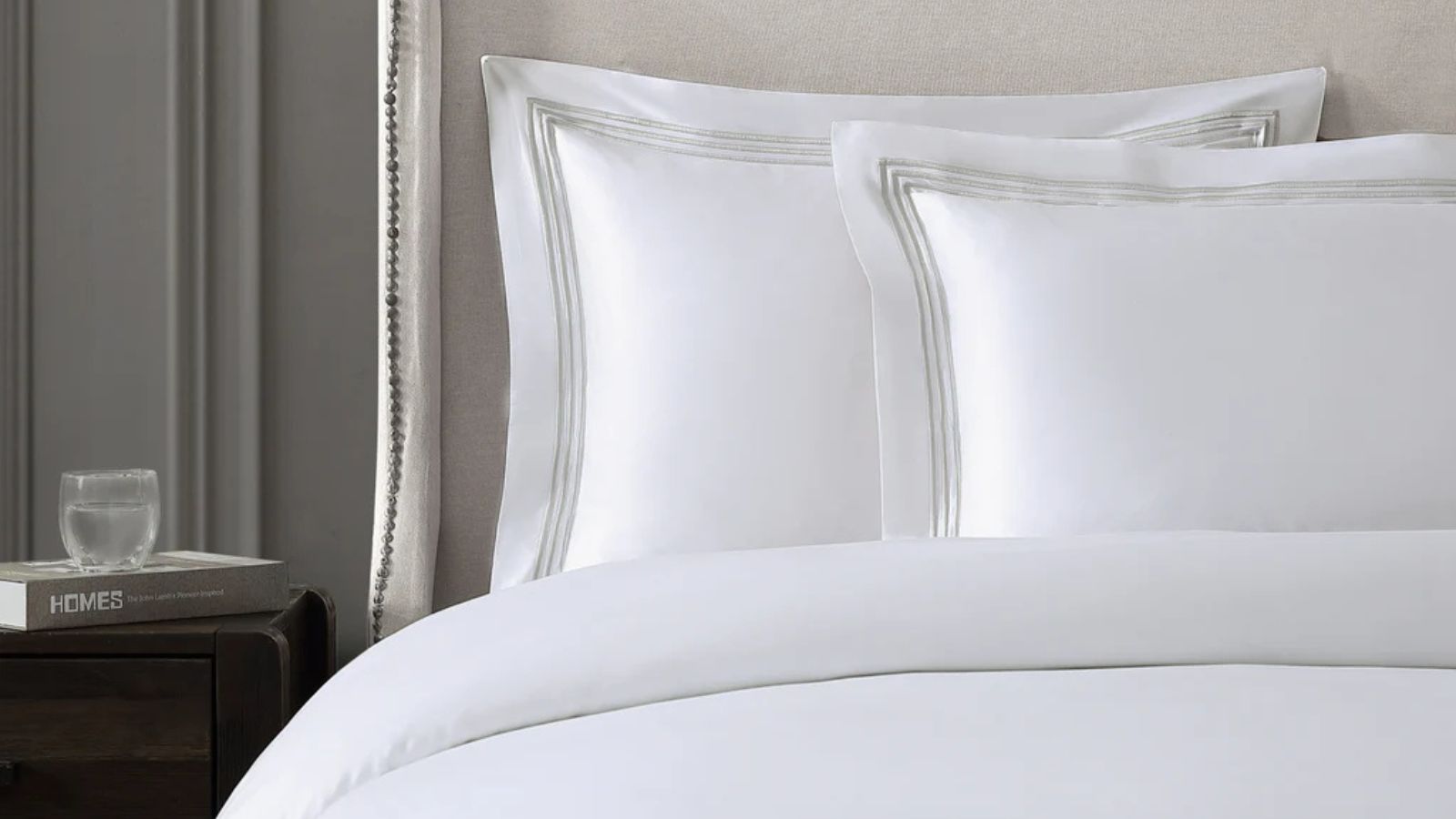

Egyptian cotton sheets are a classic for a reason. Cool, crisp, and durable, getting softer with each wash, Egyptian cotton is the material of choice for hot sleepers and anyone with an eye for luxury.
Still, you might find that other bed sheet types are more suitable for your sleep needs and budget constraints. Linen is lightweight, ideal for heat waves and hot nights. Bamboo or eucalyptus would be a better option for eco-conscious shoppers, while microfiber is made for buyers on a budget. You could sleep comfortably on any of these bed sheets − but unless you're an expert, it can be hard to split the difference.
That's where I come in. As H&G's resident Sleep Editor, I lead a team of expert testers in the search to find the best bed sheets. Over the years, we've sampled dozens of sets in every material imaginable. Our conclusion: while Egyptian cotton sheets look and feel luxurious, they might not be the best fit for everyone.
Are Egyptian cotton bed sheets really the best? Our sleep editor investigates
Before we begin, it always helps to define our terms. Egyptian cotton comes from a particular species of cotton plant, known as Gossypium Barbadense, which grows on the fertile banks of the River Nile.
Egyptian cotton plants thrive in warm climates with an abundance of water and produce extra-long-staple cotton fibers, which are tightly woven into yarns. Long fibers make stronger, softer sheets than shorter fibers, which tend to rub against each other, creating friction and causing pilling.
Egyptian cotton – for hotel-quality crispness
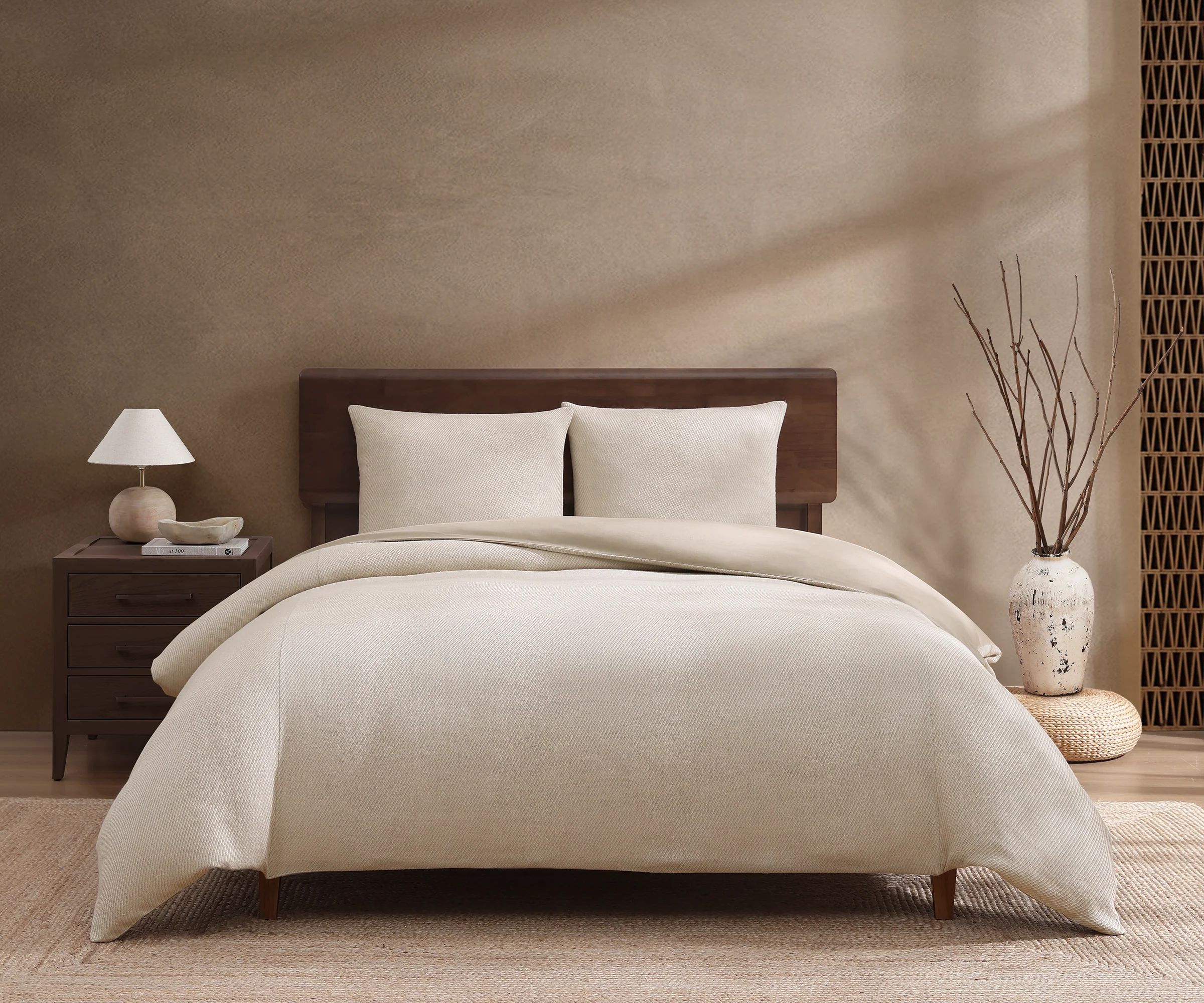
Out of all the materials I've tried, Egyptian cotton looks and feel the most luxurious. It's the sort of sheeting you expect to see in high-end hotels and luxury spas.
The exact look and feel of your Egyptian cotton depends on the weave. Cotton percale is cool and crisp, where cotton sateen feels smoother and silkier.
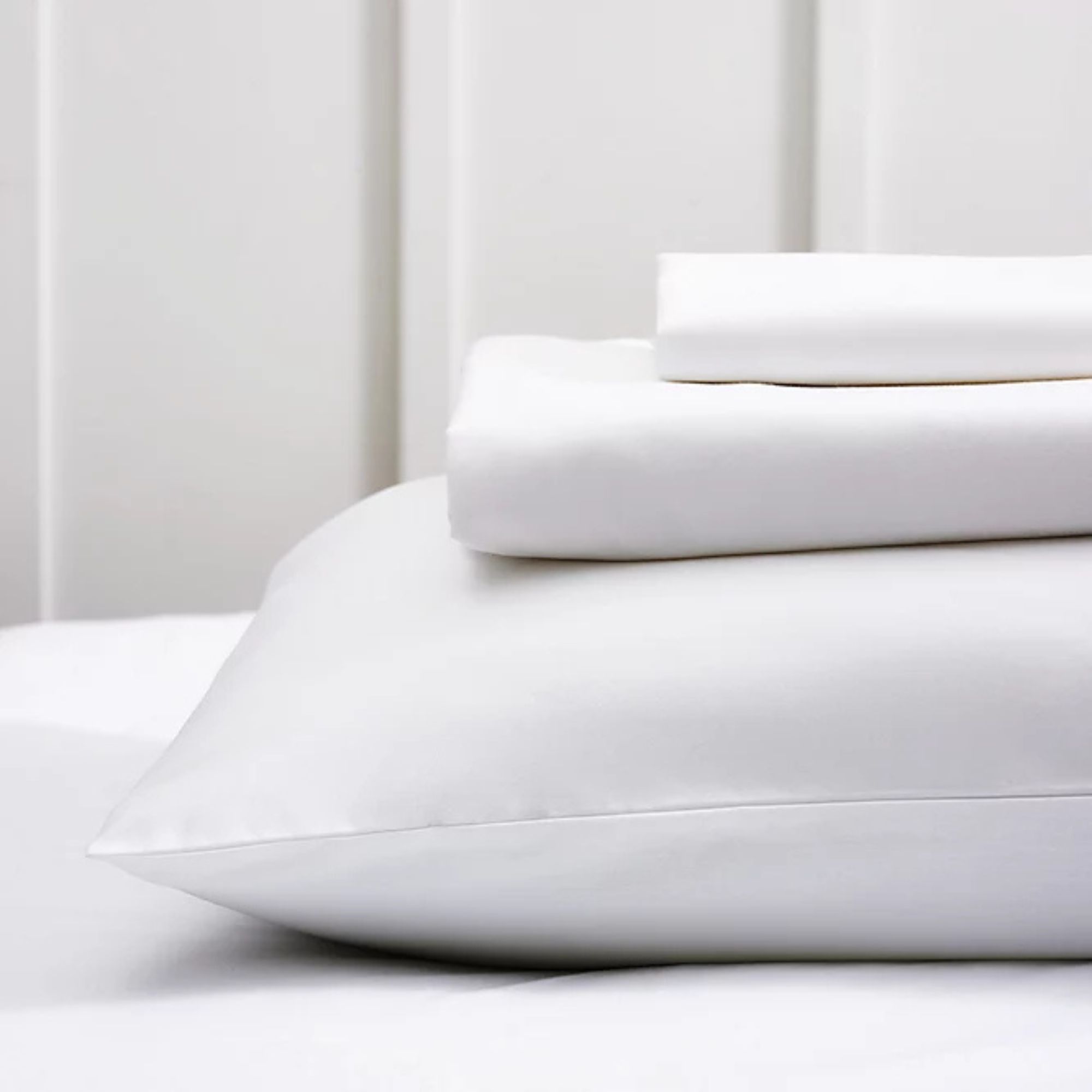
One of our expert testers, Laura, used to work for The White Company. She liked their Egyptian cotton sheets so much that she bought her own set. She's converted her parents and her grandparents, too, so now they all sleep on Egyptian cotton.
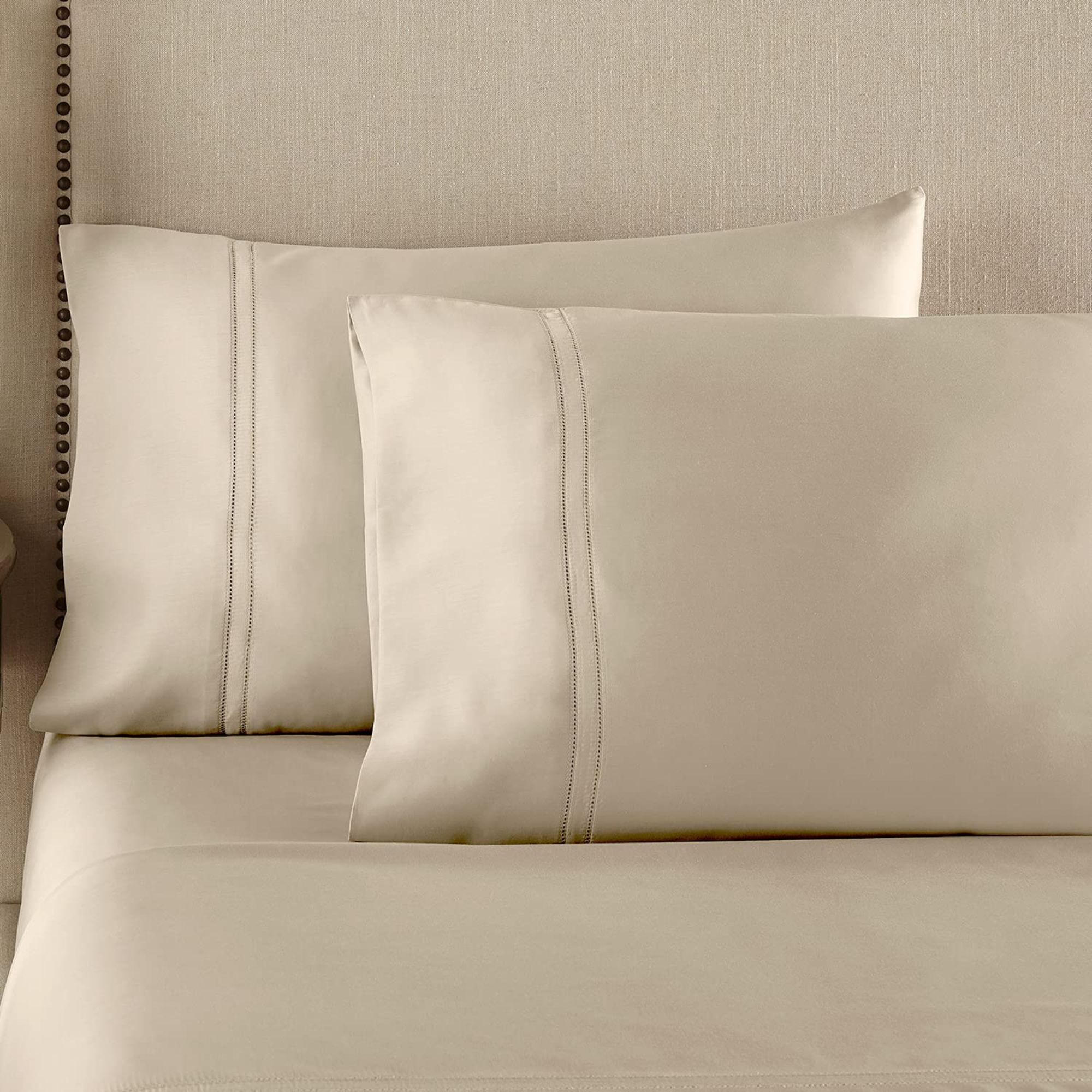
Pure Parima specializes in Egyptian cotton bedding. This sheet set is authenticated by the Cotton Egypt Association, so you know it's legit: no short staples or flimsy fibers here.
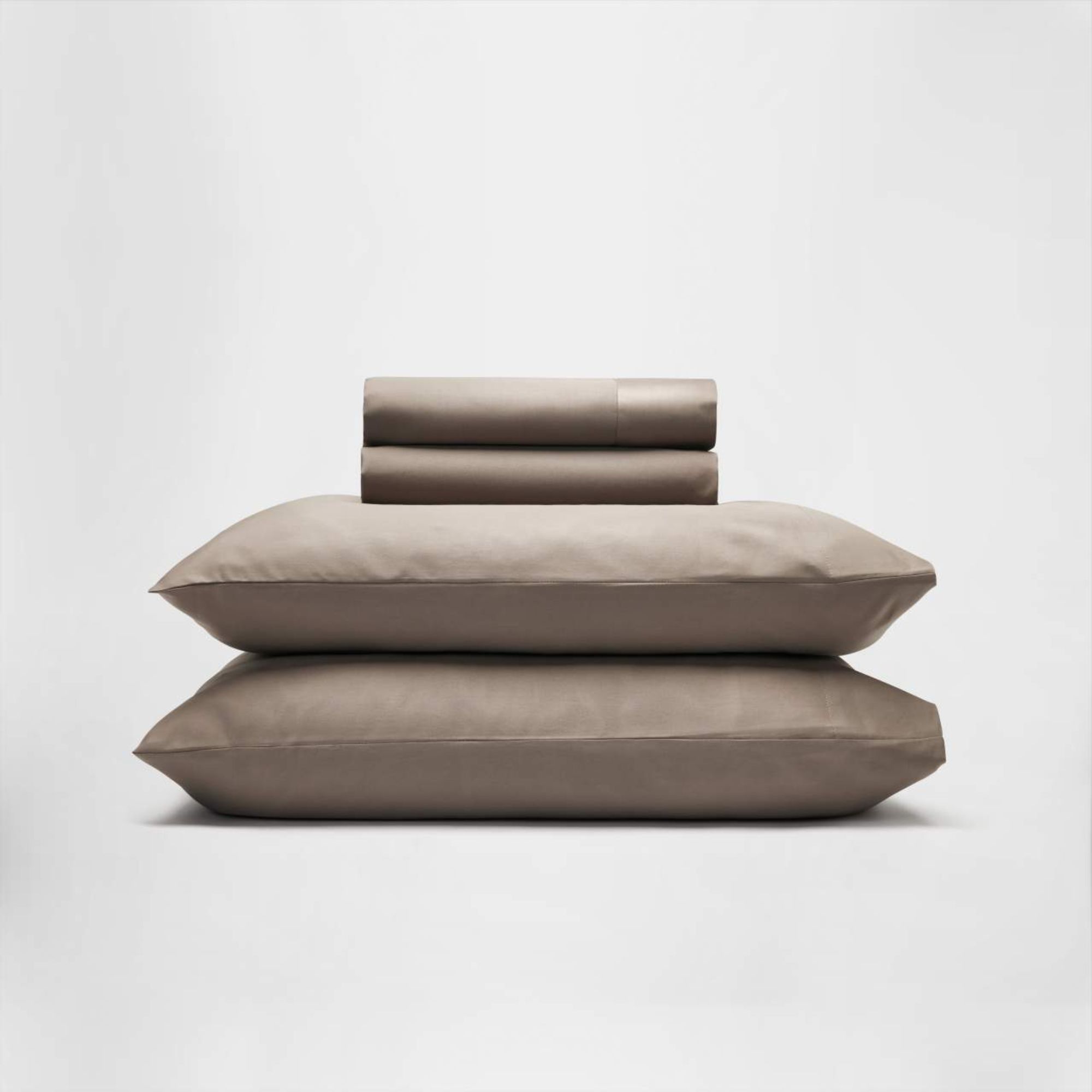
These Egyptian cotton sheets are woven into sateen for silky smoothness. Each piece is OEKO-TEX certified, so you know that you're breathing cleaner, healthier air while you sleep.
Linen − for thermoregulation
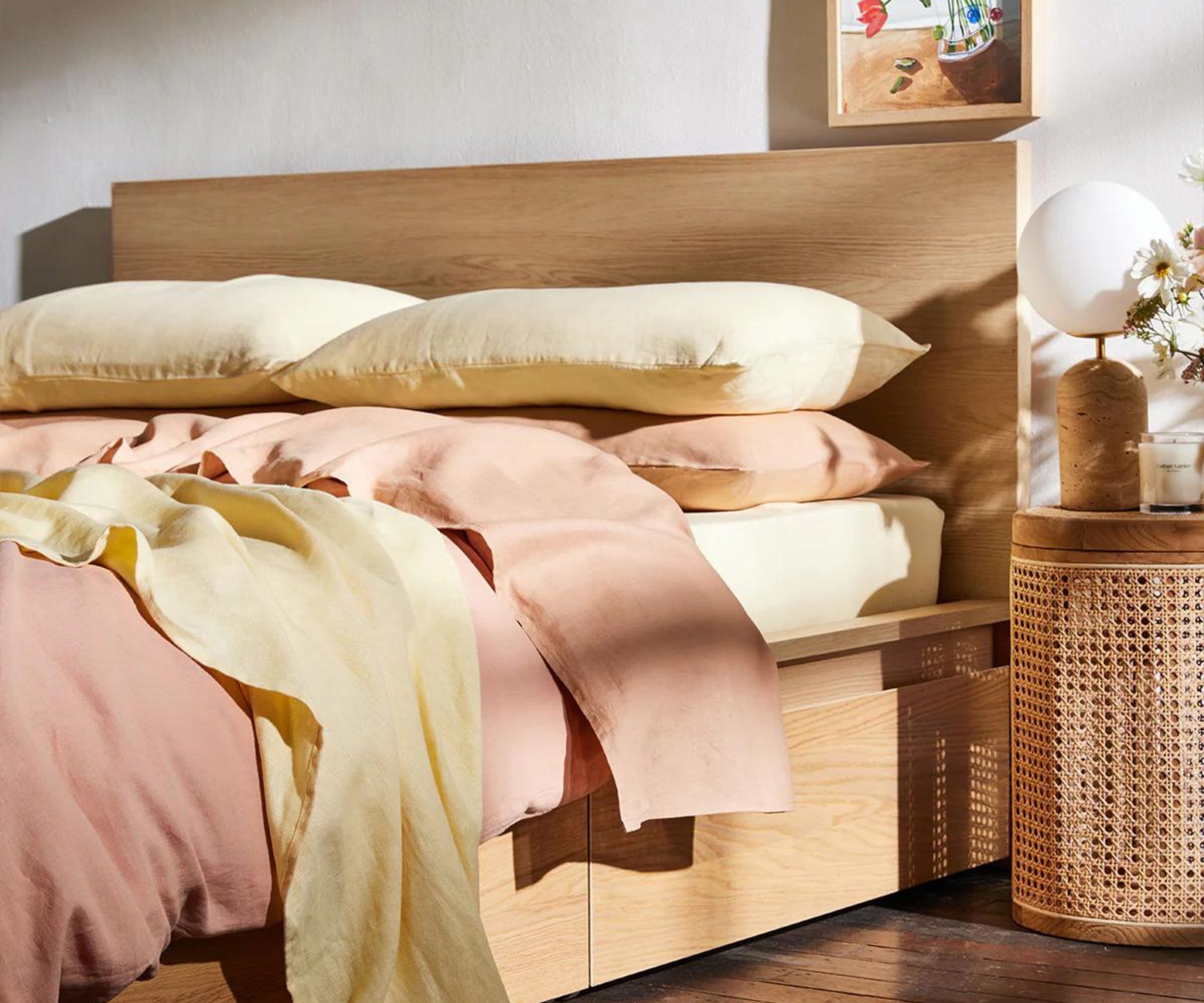
Egyptian cotton sheets keep you cool − but not quite as cool as linen. Offering the optimal combination of breathability and durability, the best cooling sheets are often made from linen.
These sheets might feel a little scratchy to start, but they should soon soften up after a few nights' sleep and a good wash. All you need to do is pop your linen sheets in the washing machine on a cold cycle. You could tumble dry on low, but I always like to air dry my bed linen to protect the natural fibers. Although linen is prone to wrinkling, I'd encourage you to embrace the creases as part of linen's natural charm.
Like Egyptian cotton, linen sheets are temperature-regulating and wash well. They're also antibacterial and anti-static to create a cleaner and more comfortable sleeping environment. If you suffer from night sweats, hot flashes, or you simply run a little hot, you might get on better with the best linen bed sheets.
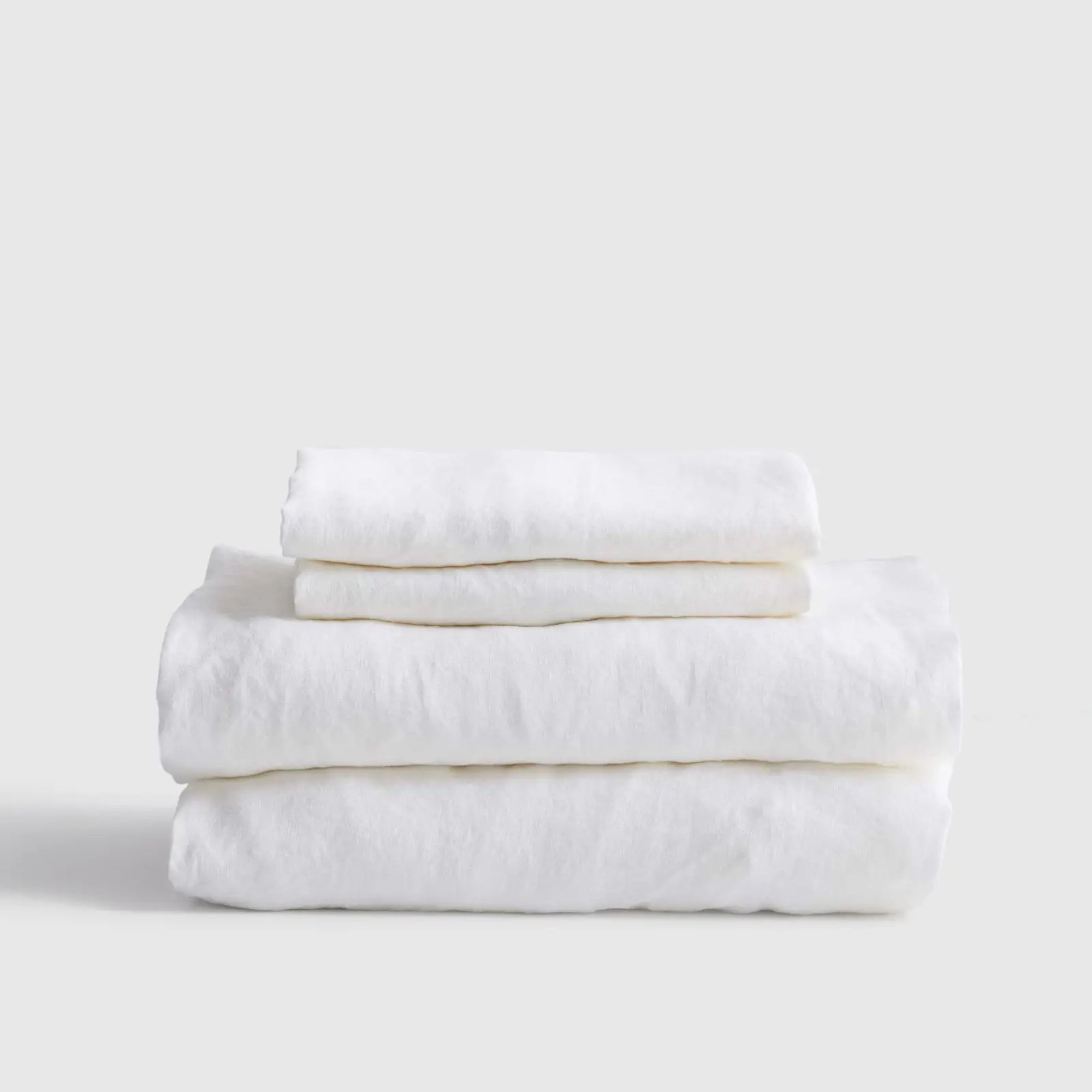
Given that linen is one of the most expensive bed sheet materials, I think this sheet set from Quince is highly affordable. From 5,686 verified reviews, these sheets boast a 4.8 average star rating.
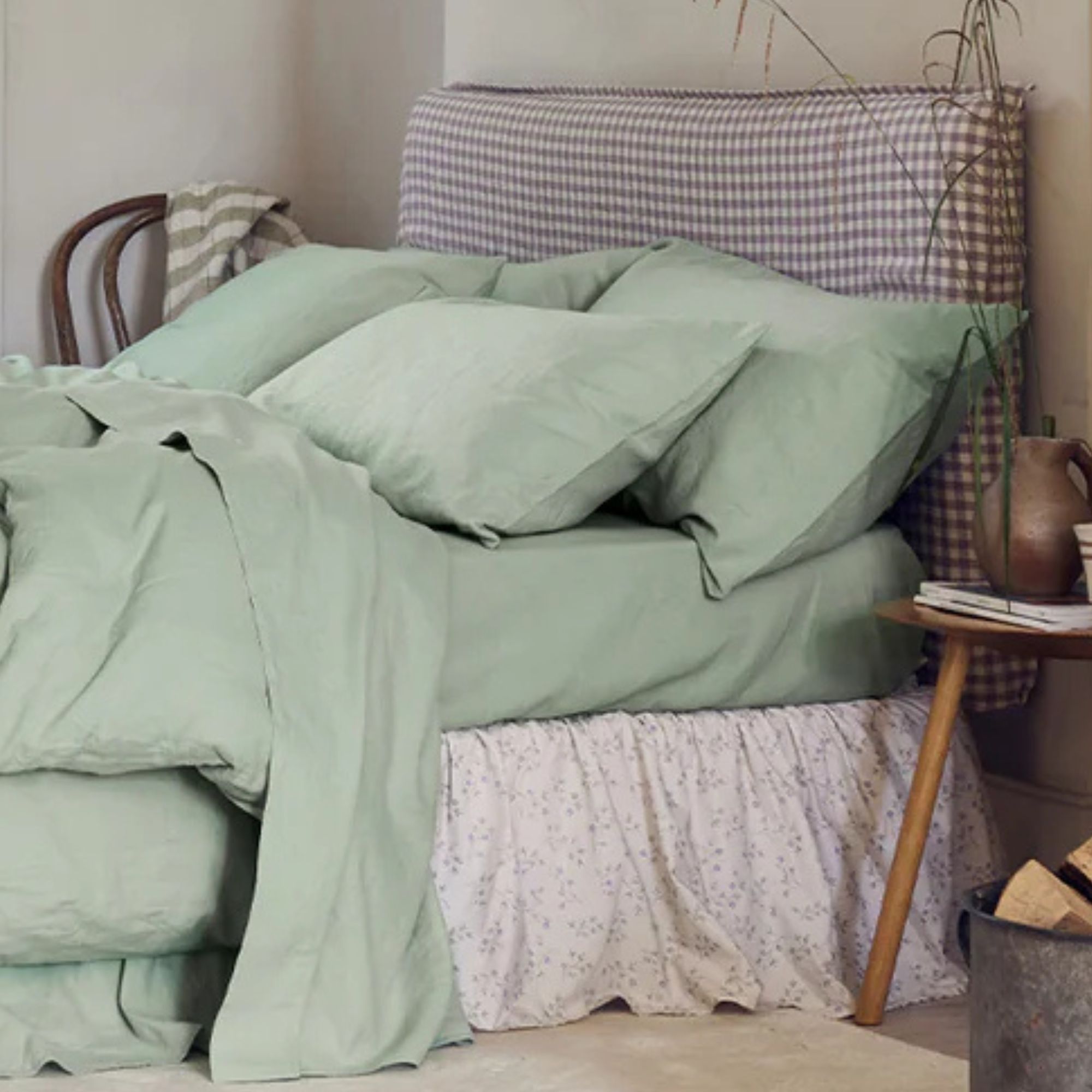
I built my own bedding bundle with Piglet in Bed. I chose to color drench my bedroom in sage green, but you might prefer to mix and match between warm and cool neutrals, prints and patterns.
Bamboo – for eco-conscious shoppers
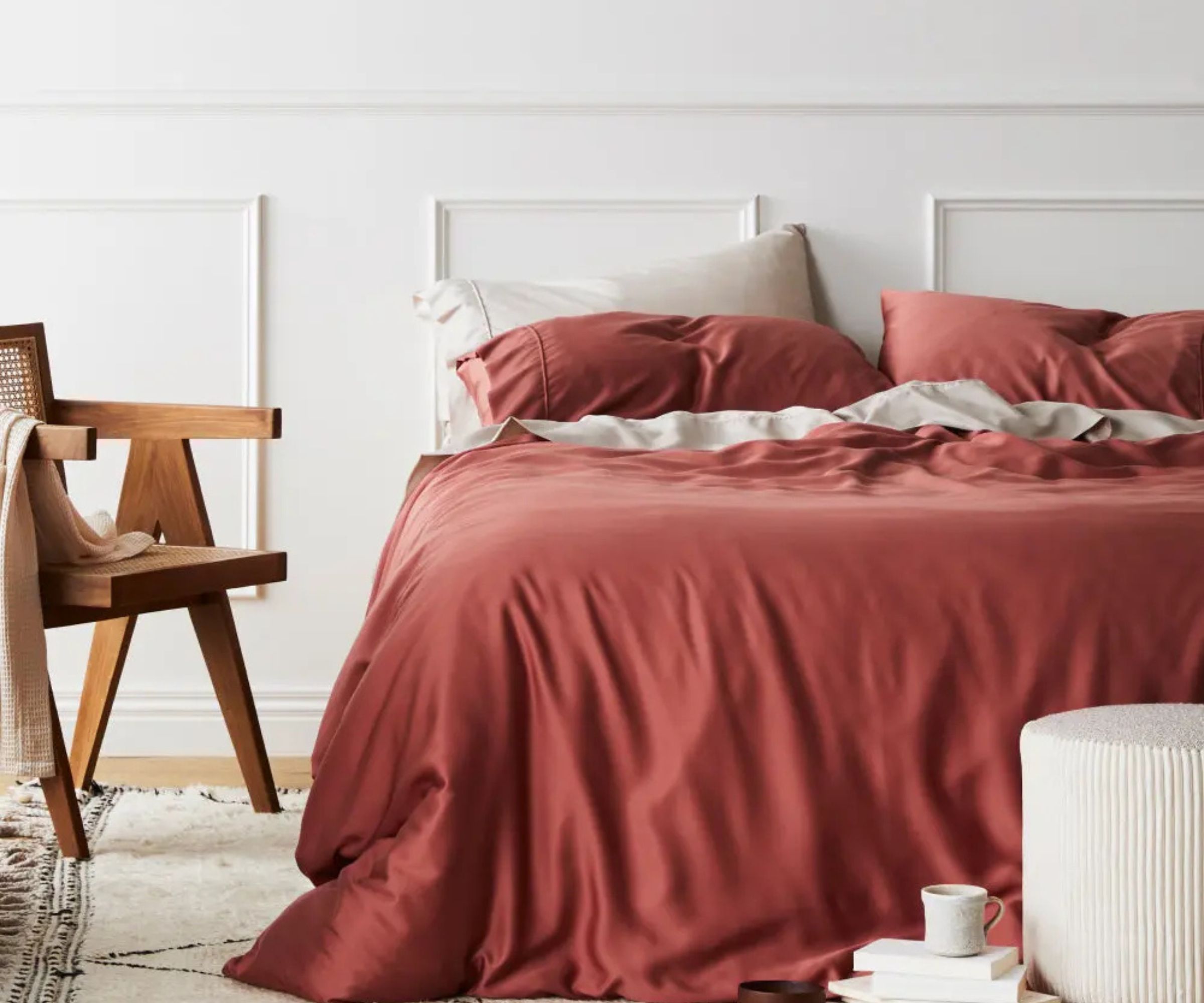
If you know where to look for it, you can find a set of organic Egyptian cotton sheets in one of the major sleep stores. But if you're keen to shop sustainably, you might be better off with bamboo bedding.
Most bamboo bedding incorporates either viscose or lyocell. Viscose is quicker to produce and comes a little cheaper, but it isn't quite as silky and smooth as bamboo lyocell. The difference is in the chemicals: the best bamboo lyocell is grown organically, totally free from toxic solvents, pesticides, and fertilizers.
Bamboo is the fastest-growing plant on Earth. According to ettitude, bamboo grows three times faster than we can harvest it, and hundreds of times faster than eucalyptus trees or cotton plants. You can rest easy on the best bamboo bed sheets, safe in the knowledge that you aren't depleting natural resources.
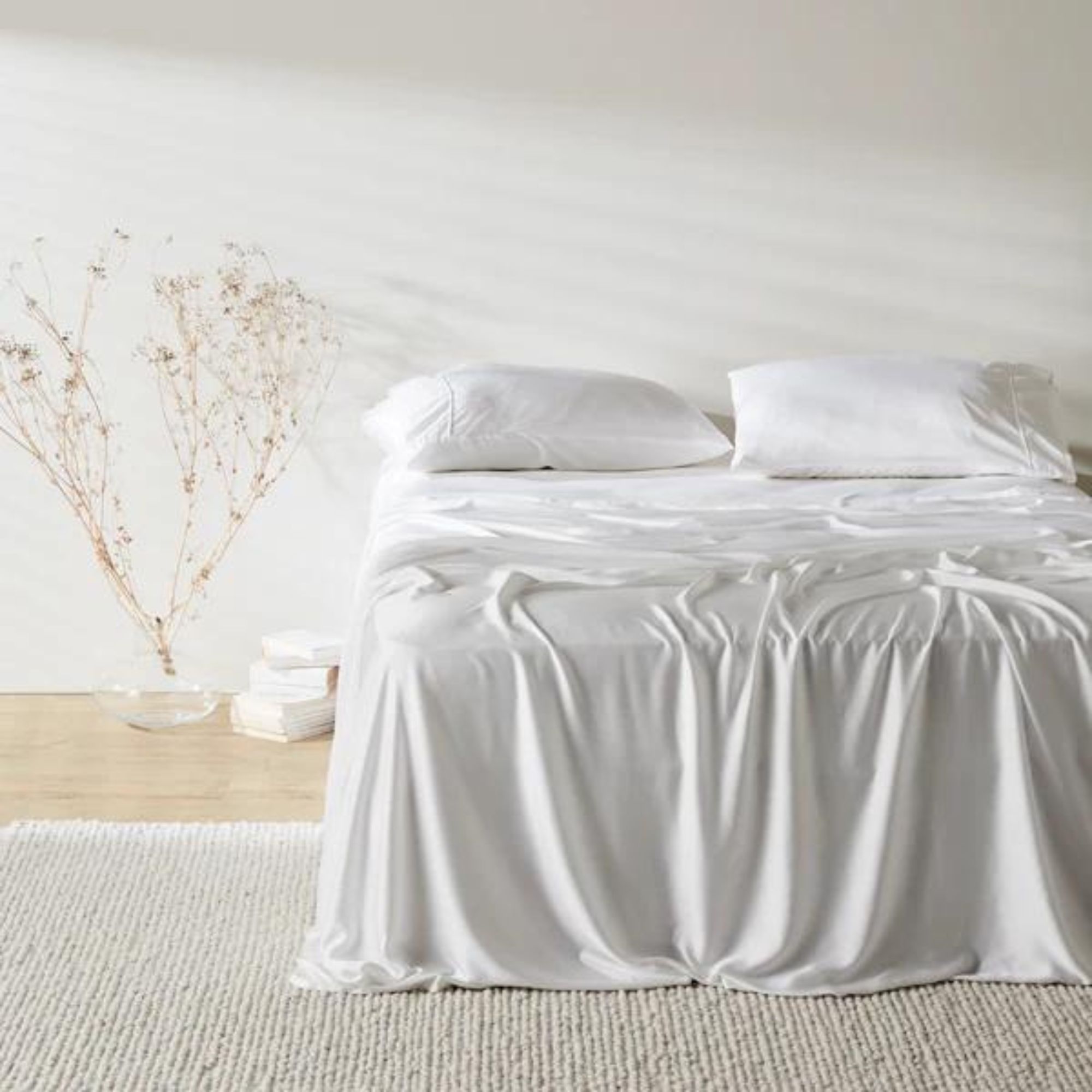
These sheets are made from bamboo lyocell, grown from 100% rainwater, and totally free from toxic chemicals and plastics. Each flat sheet, fitted sheet, and pillowcase is finished with a super-smooth sateen weave.
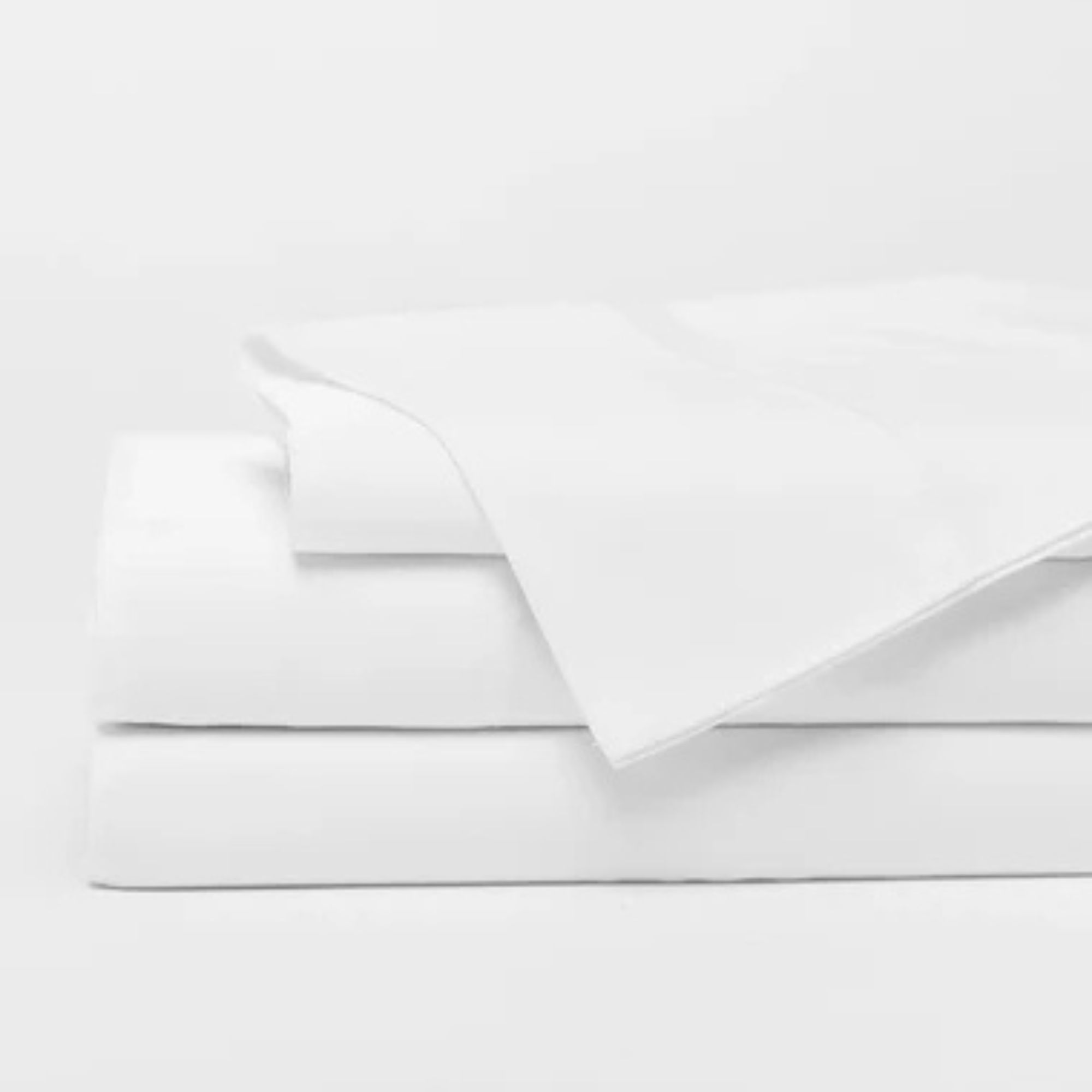
Kris Jenner sleeps on these sheets, and says they're the softest she's ever felt. Our expert tester, Sophie Edwards, agrees: 'I'm seriously impressed. This is some of the best luxury bedding I've sampled.'
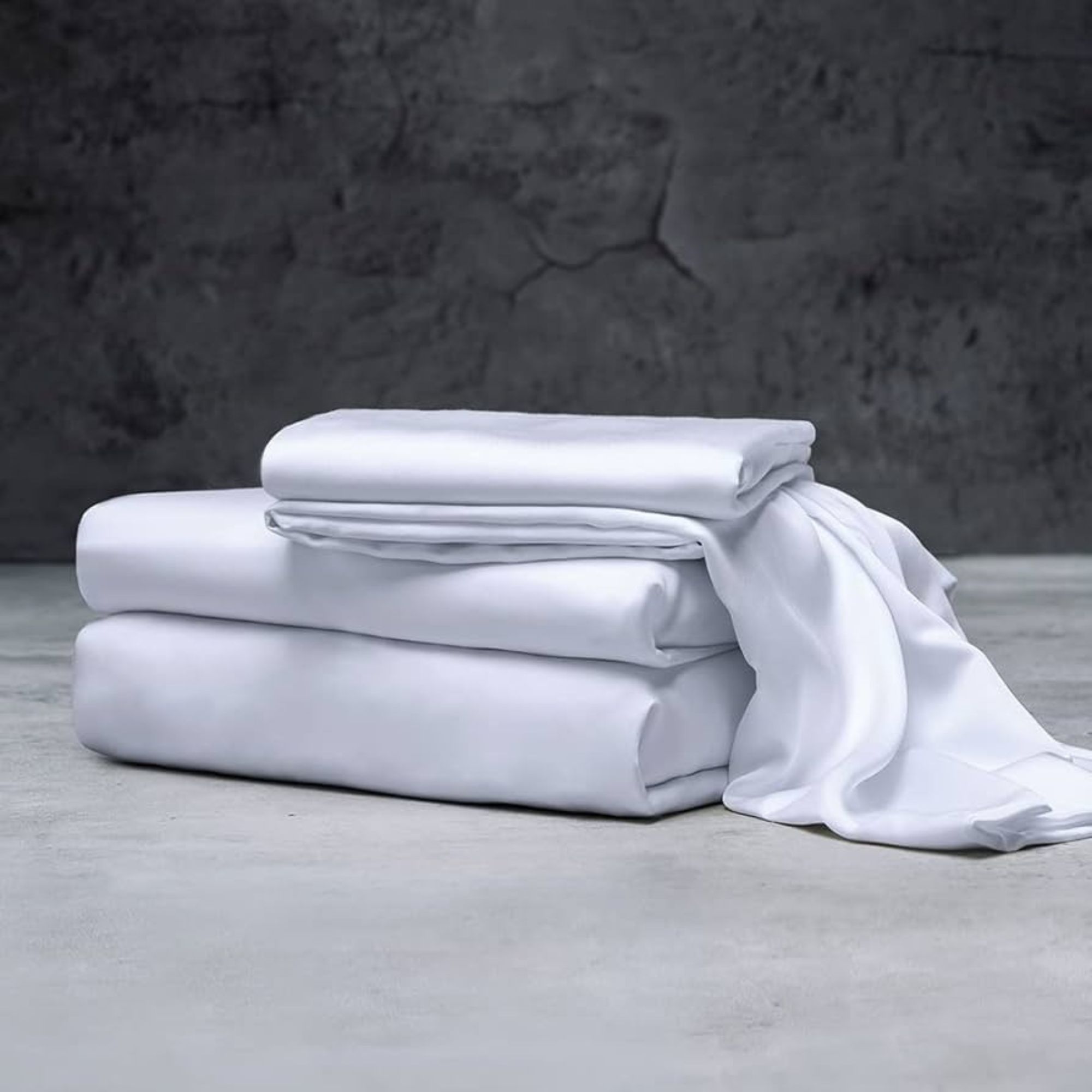
This is the first sheet set I ever sampled for H&G. More than a year since I started testing, I still appreciate the cooling comfort and the silky-smooth finish, which hasn't worn off in the wash.
Eucalyptus − to stop the night sweats
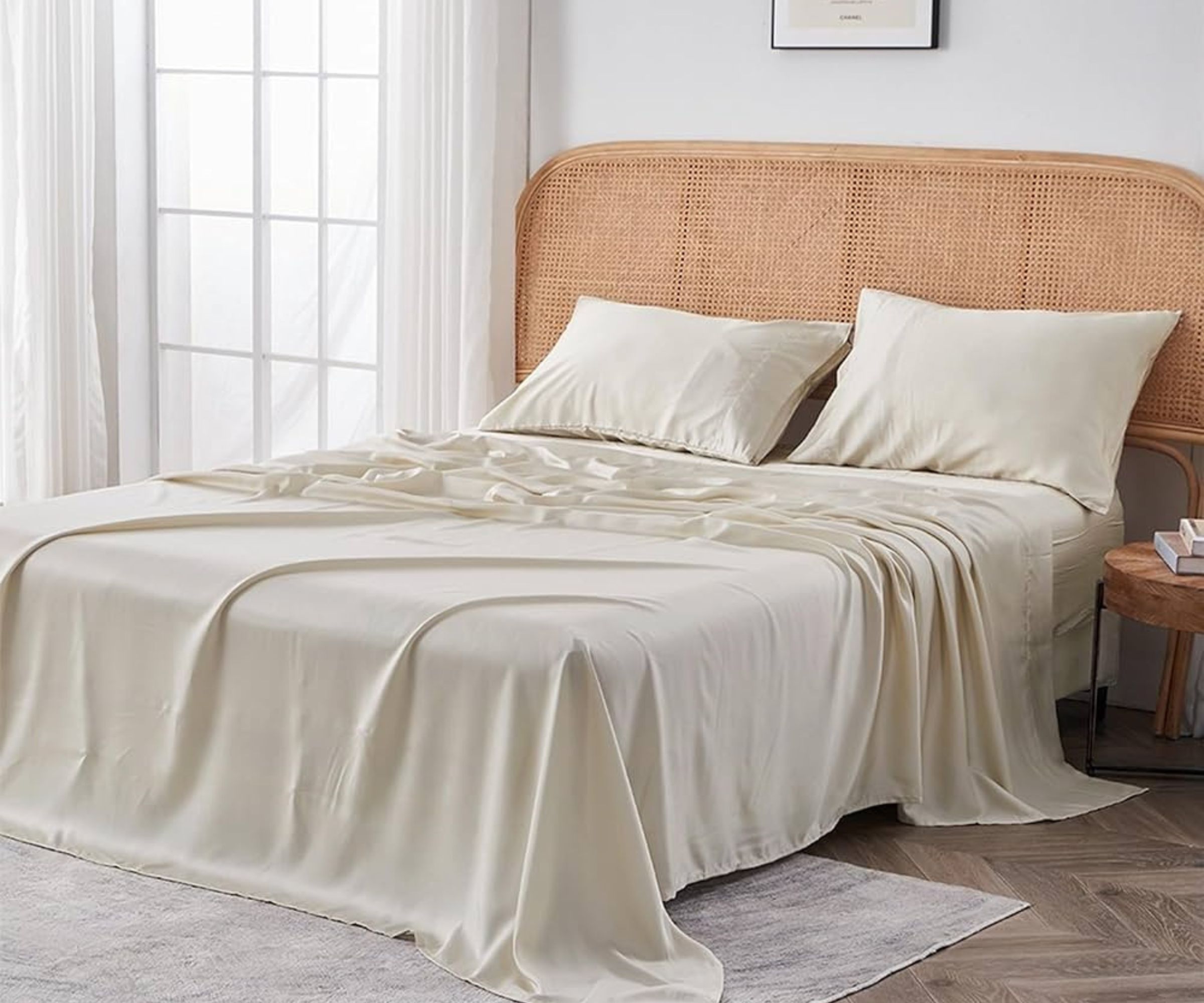
Egyptian cotton bed sheets might be easy to keep clean, but eucalyptus bedding is better for busting bacteria. Naturally moisture-wicking and antimicrobial, these sheets are designed to kill the bacteria that breeds in hot, damp environments, such as bedrooms.
Eucalyptus sheets tend to be hypoallergenic, which means they're suitable for sensitive sleepers. Soft on your skin and cool to the touch, I'd also recommend eucalyptus sheets to hot sleepers and anyone who lives in a warmer climate.
Like all natural fibers, eucalyptus is prone to pilling, but no more than Egyptian cotton. You can protect and preserve your eucalyptus sheets by avoiding bleach and fabric softeners and only washing with soft fabrics.
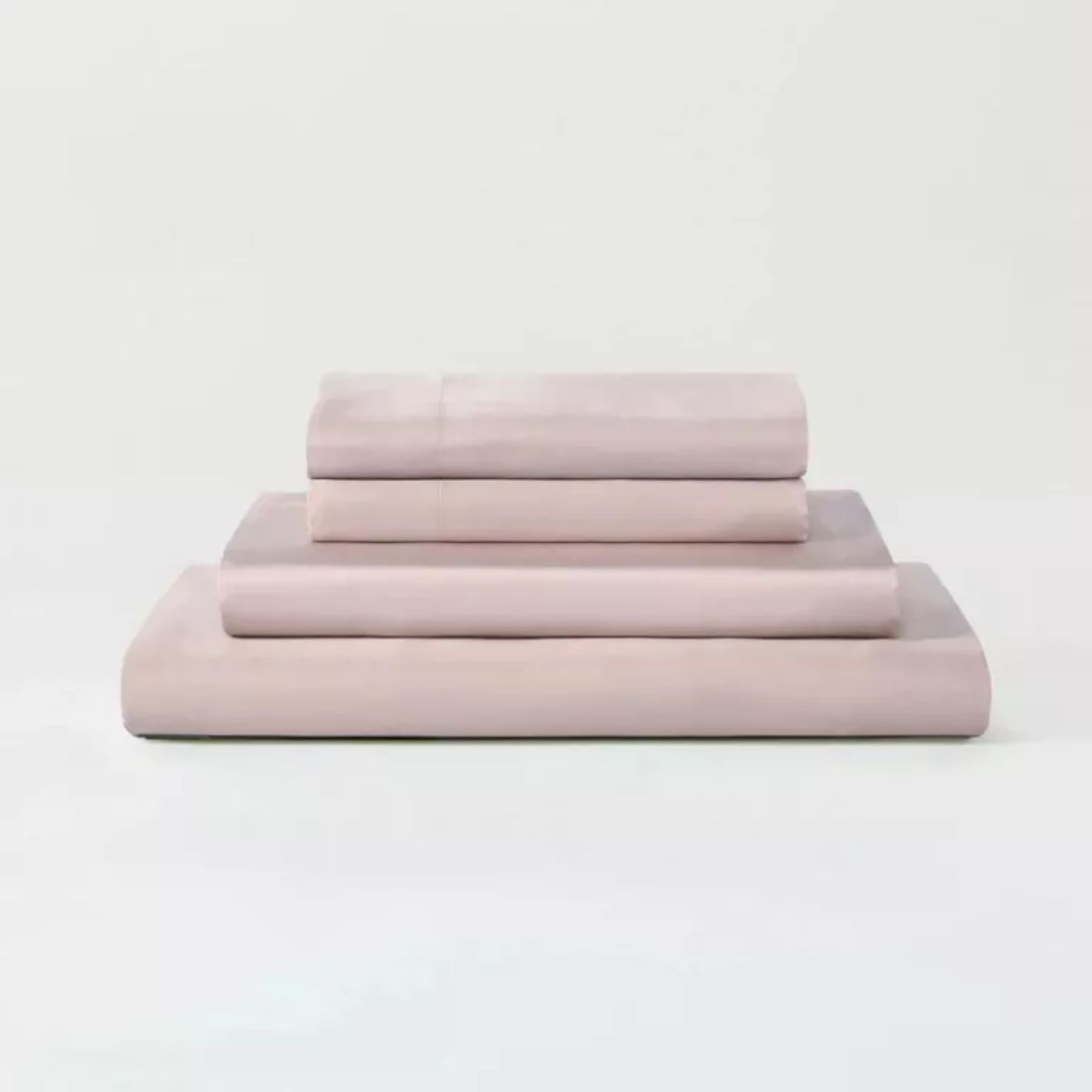
Just a quarter of an inch thick, the Sijo Eucalyptus Sheet Set is the ideal solution for hot sleepers who still like a layer. These are the sheets I reach for on hot nights – they saw me through the summer heat wave.
Microfiber – for buyers on a budget
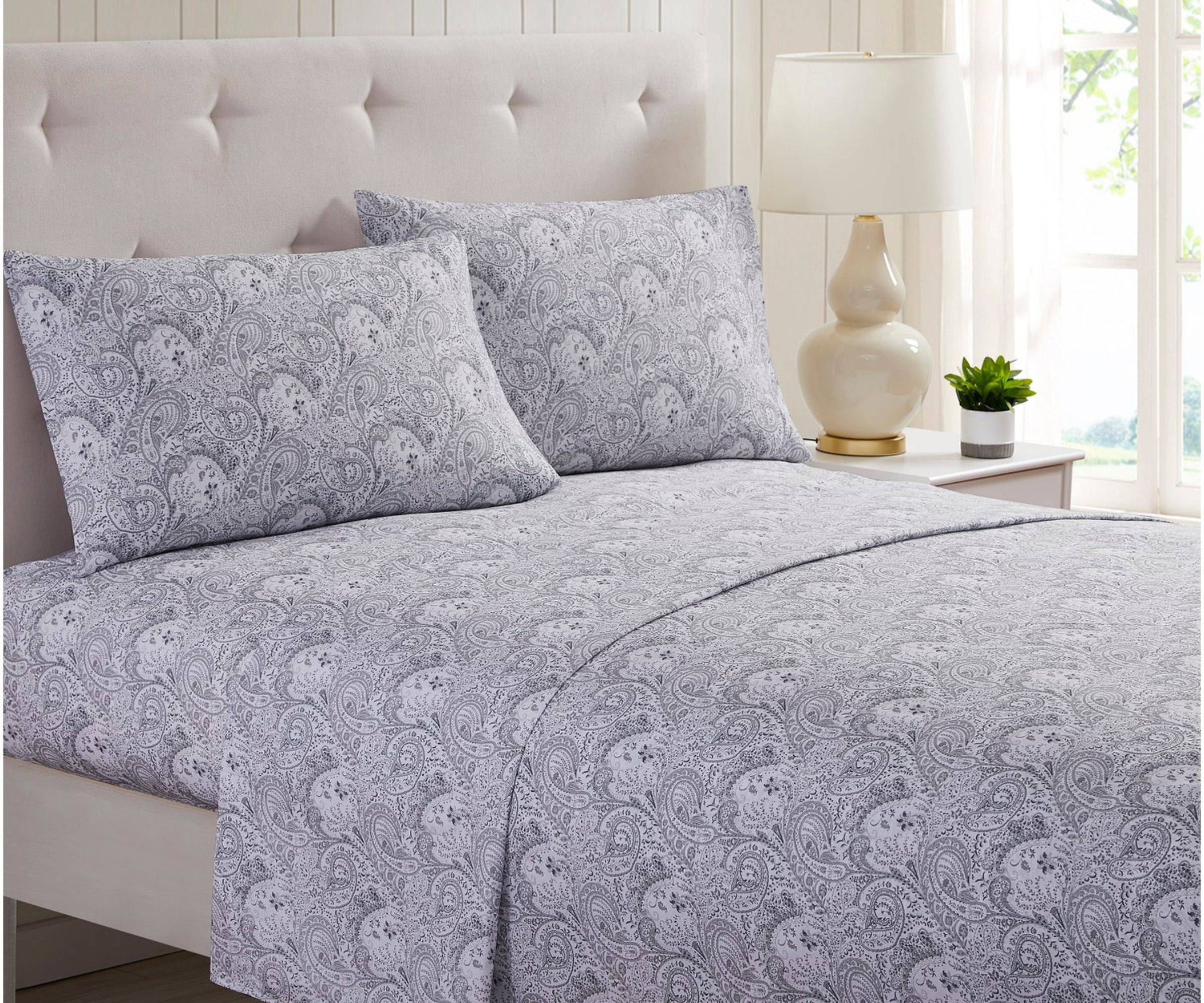
Looking through this list got me thinking: whether they're made from Egyptian cotton or durable linen, breathable bamboo or super-smooth eucalyptus, the best bed sheets can be seriously expensive.
You shouldn't have to drop a few hundred dollars to get a decent night's sleep. When you buy microfiber bedding, you don't have to. Sure, it won't feel as crisp or clean as Egyptian cotton, and it's a far less sustainable option, but it might be the best bet for buyers on a budget. Remember, the best affordable bed sheets should look and feel expensive.
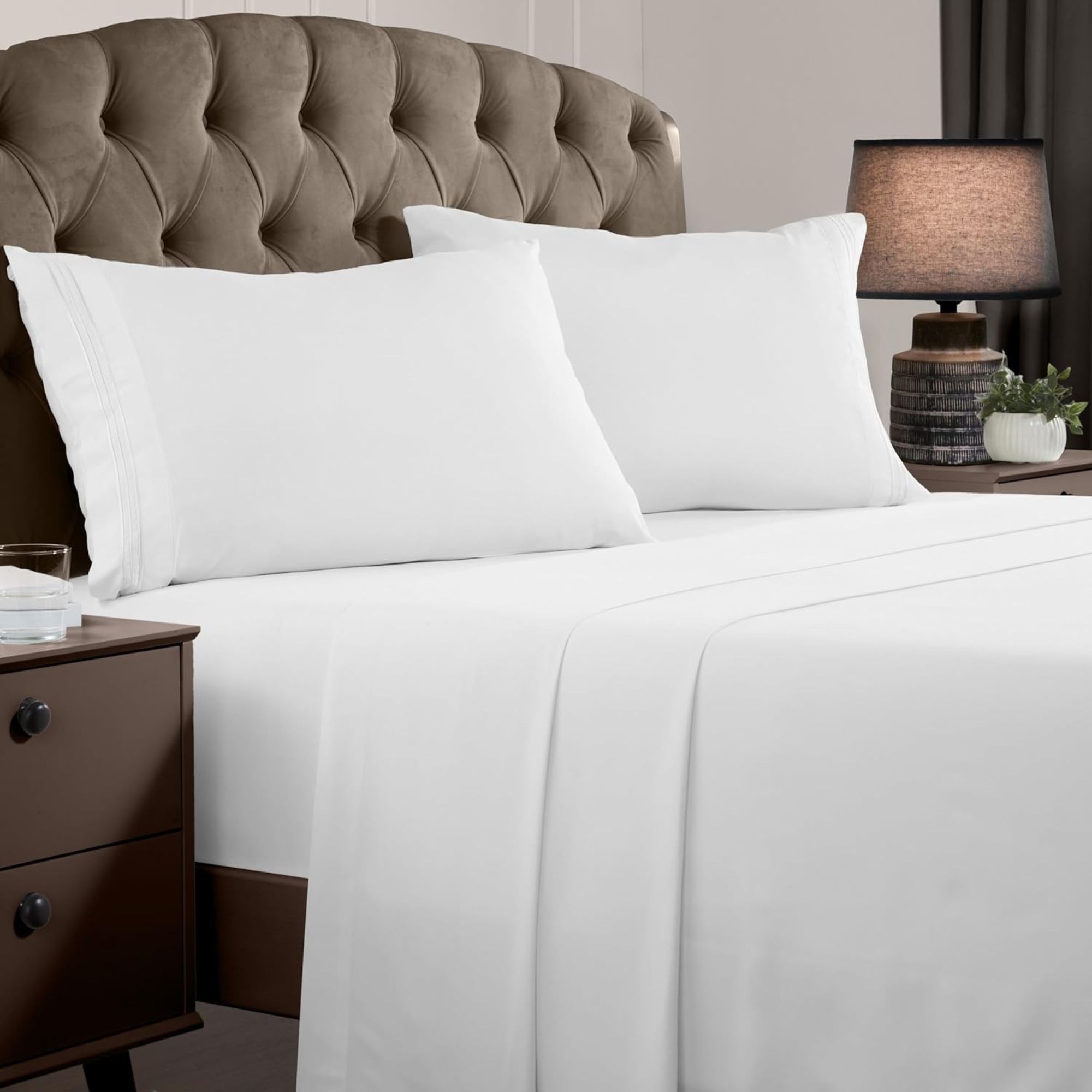
These are the best cheap sheets on the market. The Mellanni Sheet Set boasts more than 250,000 five-star reviews on Amazon, praising their comfort and softness.
FAQs
Is Egyptian cotton worth the money?
Although Egyptian cotton is often more expensive than microfiber sheets, you get what you pay for: long, strong fibers, tightly woven to withstand wear and tear. If you like the look and feel of cool, crisp sheets, then you'll love Egyptian cotton. These breathable, durable sheets wash well and lie beautifully after a quick iron. Egyptian cotton sheets are a good option for hot sleepers, though you might prefer linen for a lightweight option.
Where can I buy Egyptian cotton sheets?
Many of the best places to buy bedding sell Egyptian cotton sheets. If I had to pick one, Pure Parima is the market leader in Egyptian cotton bedding, and with good reason: each sheet set is soft to the touch and made to last.
Do Egyptian cotton sheets wrinkle?
Yes. Like all natural fibers, Egyptian cotton is prone to wrinkling. It's all to do with the low elasticity of the cotton staples, which fail to spring back into shape when the moisture evaporates. Still, it's easy to get rid of wrinkles when you iron your sheets on a cotton setting or throw them in the tumble dryer on low heat.
Will Egyptian cotton sheets pill?
Egyptian cotton sheets aren't prone to pilling. That's because they're woven from longer fibers, which are stronger and smoother than the short-staple yarns you might find in wool, polyester, or cotton sheets.
Once you've bought a set of the best bed sheets, Egyptian cotton or otherwise, it's important to take good care of them. It's worth learning how to wash bed sheets to make the most of your bedding.
Sign up to the Homes & Gardens newsletter
Design expertise in your inbox – from inspiring decorating ideas and beautiful celebrity homes to practical gardening advice and shopping round-ups.

Emilia is our resident sleep writer. She spends her days tracking down the lowest prices on the best mattresses and bedding and spends her nights testing them out from the comfort of her own home. Emilia leads a team of testers across America to find the best mattress for every sleep style, body type, and budget.
Emilia's quest to learn how to sleep better takes her all around the world, from the 3Z mattress factory in Glendale, Arizona to the Hästens headquarters in Köping, Sweden. She's interviewed luxury bedding designers at Shleep and Pure Parima, as well as the Design Manager at IKEA. Before she joined Homes & Gardens, Emilia studied English at the University of Oxford.
-
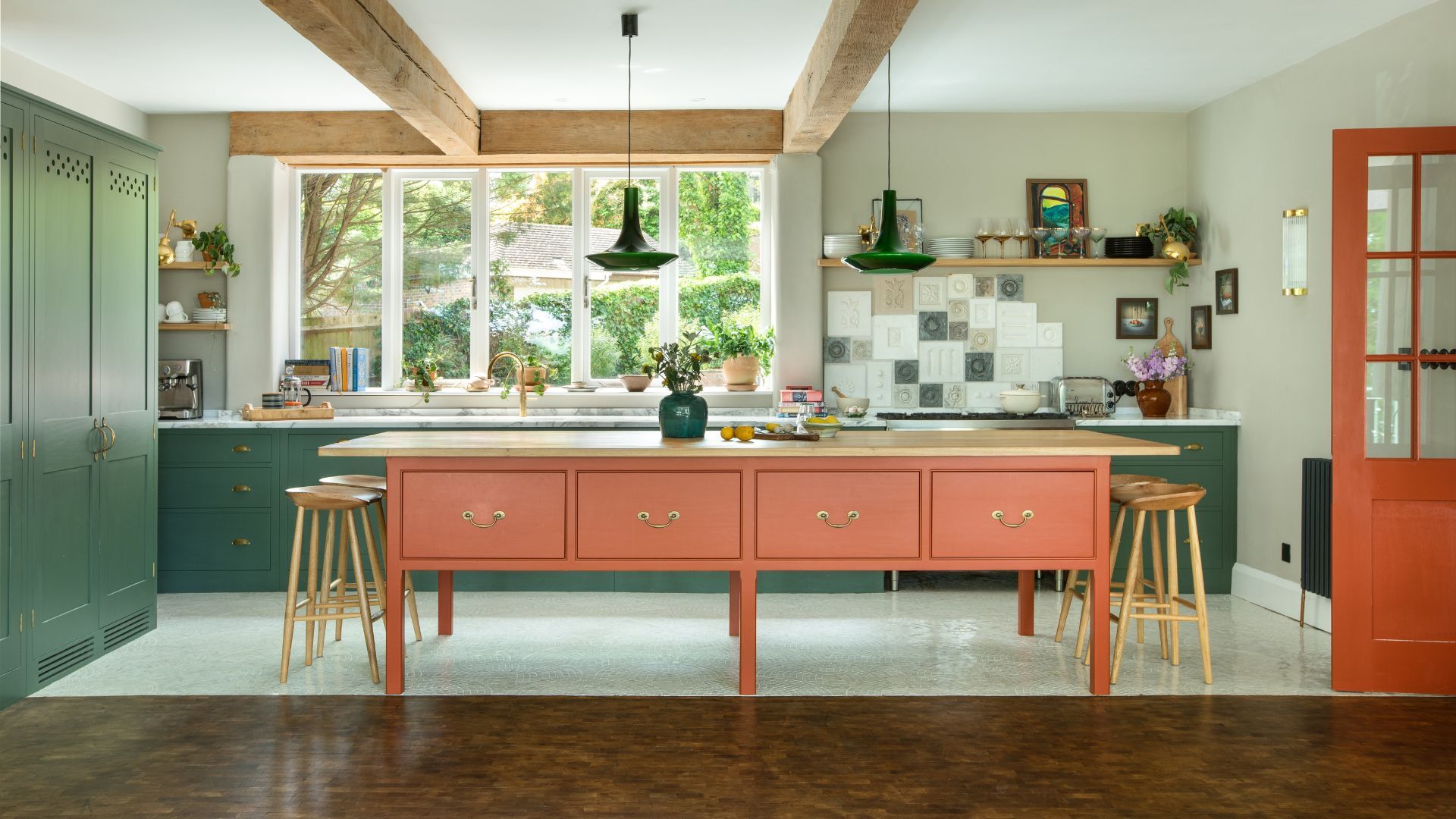 Orange and green is the bold color pairing quietly transforming homes in 2025 – here's 4 reasons why
Orange and green is the bold color pairing quietly transforming homes in 2025 – here's 4 reasons whyInterior designers are making the orange and green combination work wonders – this is how you can too
By Sophia Pouget de St Victor Published
-
 This Michelle-Pfeiffer-approved chair is made of a forebodingly unusual material, opening the debate: Is it a rustic stunner, or a danger to sitters?
This Michelle-Pfeiffer-approved chair is made of a forebodingly unusual material, opening the debate: Is it a rustic stunner, or a danger to sitters?The actress took to Instagram with a chair made of a controversially sharp material – and fans are unsure of how they feel about it
By Sophie Edwards Published
